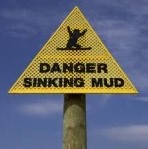 There are as many different approaches to planning as social media sites. Some of the more common ones we’ve seen are fly by the seat of the pants, whilly nilly, cross our fingers and hope it works, and my all time favorite, throw it up against the wall and see what sticks.
There are as many different approaches to planning as social media sites. Some of the more common ones we’ve seen are fly by the seat of the pants, whilly nilly, cross our fingers and hope it works, and my all time favorite, throw it up against the wall and see what sticks.
All kidding aside, planning is an important part of any business success. Given the continued economic roller coaster, planning your best case scenario is essential.
Several entrepreneurial clients have asked about implementing a structured planning process for their business. Here’s the protocol we recommend.
Day One:
6:00 – 8:00 pm Decompress
An effective planning retreat begins with regurgitating all that’s been bottled up this past year. To accurately assess your current year, worksheets provided prior to your retreat assist in gathering information related to your business performance. We discuss what went right and what went wrong – without creating a solution! This opens your mind for the dreaming and planning period.
Day Two:
9:00 – 10:00 am Dream
Free of any current year distractions, we discuss where you really want to go in 2011, what it looks like, what it means to you, and how it will feel. We also tackle any fears, challenges, and/or concerns.
10:00 – 11:30 am Devise
It’s time to open your mind and say ”ahhhh” to unlock the possibilities. No idea will be out of the realm of possibility as we let our minds flow freely during this “idea storming” phase.
11:30 am – 1:00 pm Lunch break
1:00 – 3:30 pm Decide
Given a clear picture of what is possible, and armed with a long list of possibilities, we develop your plan of action complete with objectives, goals, timelines, and projected gains.
3:30 – 4:00 pm Debrief
With your 2011 plan in place, it’s time to bring your planning retreat to a successful conclusion by identifying all that you learned including the value your learning will create for you in the new year. This anchors your retreat experience and provides greater clarity.
4:00 – 5:00 pm Celebrate
No retreat is complete until the celebration begins. Following your concentrated efforts, you are ready to honor all you’ve achieved and applaud the success that is to come.
Success doesn’t just happen without a well-thought out planning process. By creating your 2011 plan now, you’ll be ready to rock the new year. If you want to discuss a Business Success Planning Retreat for your business, contact us at 800.398.6428 or online.


 Several months ago, Fast Company ran an article on the supposed demise of strategic planning in favor of strategic execution. Undoubtedly, many solopreneurs and owners of microenterprises leapt for joy as they read of its hypothetical passing. Perhaps it relieved some of the pressure felt of the need for a strategic plan.
Several months ago, Fast Company ran an article on the supposed demise of strategic planning in favor of strategic execution. Undoubtedly, many solopreneurs and owners of microenterprises leapt for joy as they read of its hypothetical passing. Perhaps it relieved some of the pressure felt of the need for a strategic plan.
 Do you ever find yourself stuck? Unable to move forward on a project or a goal? In your quest to jar yourself loose, are you asking yourself “Why can’t I move forward? Why am I feeling this way? Why am I so stuck?!”
Do you ever find yourself stuck? Unable to move forward on a project or a goal? In your quest to jar yourself loose, are you asking yourself “Why can’t I move forward? Why am I feeling this way? Why am I so stuck?!”